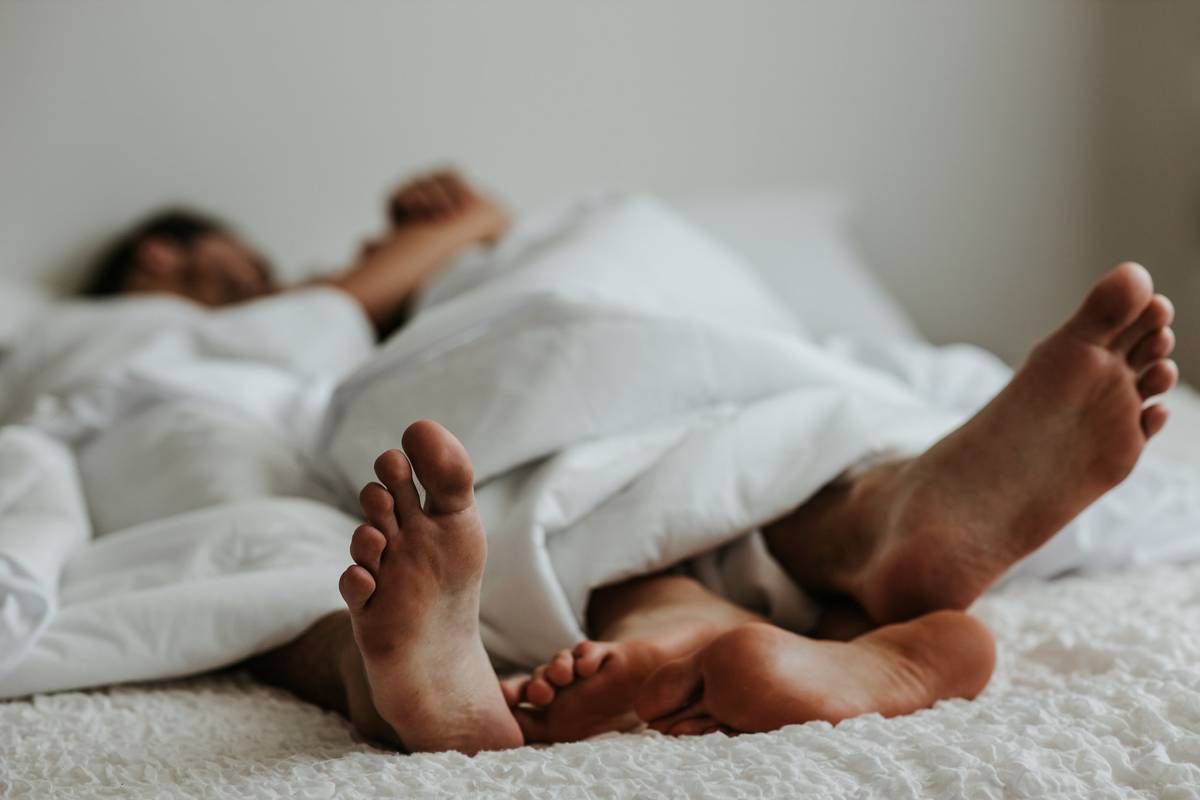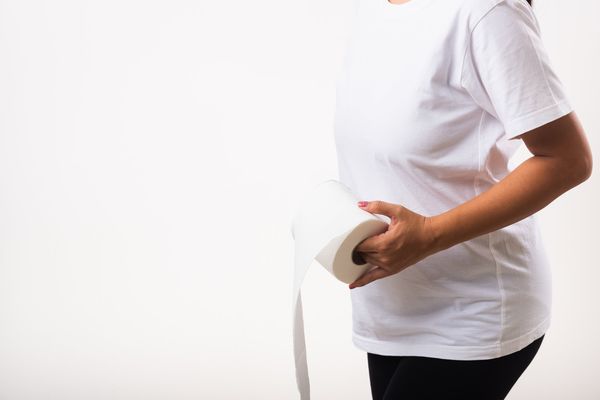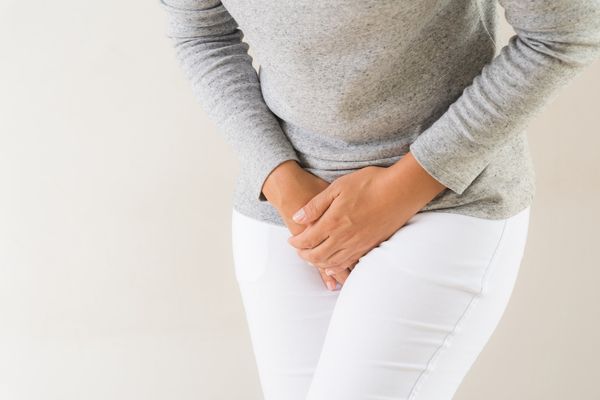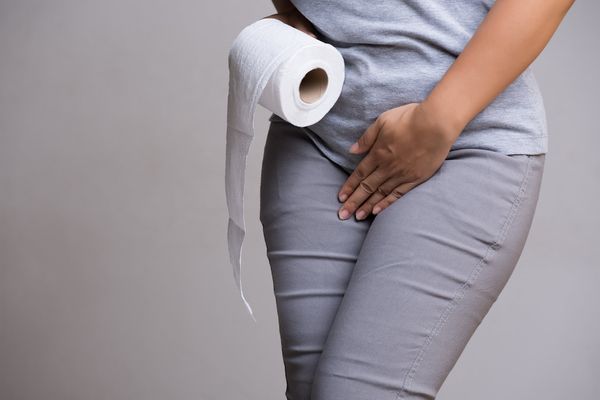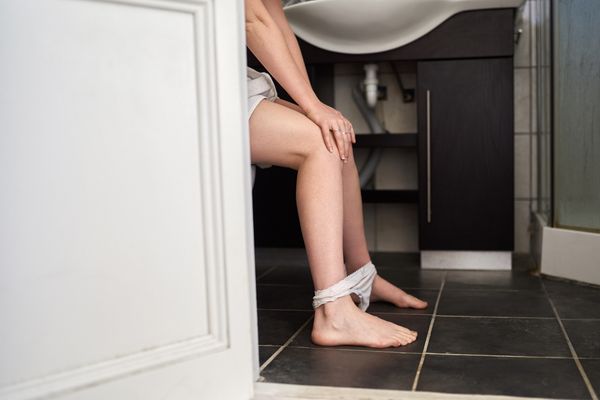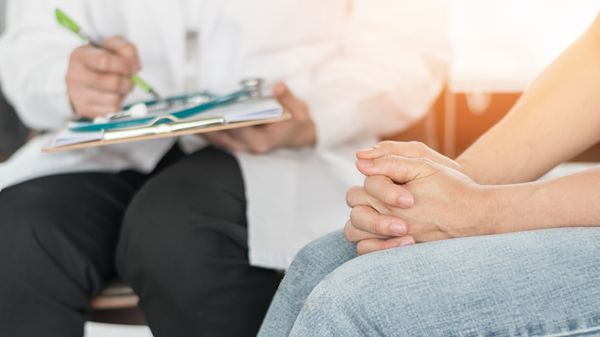For women living with bladder challenges, communication and self-confidence may lead to a healthy sex life.
The lights are low, the mood is right. But just as you and your partner are about to get hot and heavy, an urgent, immediate need to pee makes you rush to the bathroom — once again, your overactive bladder has impacted your sex life.
Yet while OAB may affect intimate relationships, it doesn’t have to ruin them. Learning how and when to seek care as well as how to increase communication with health care providers and partners can help women reclaim intimacy and improve their sexual relationships.
Seeking care for OAB and sexual symptoms
Research shows that more postmenopausal women with OAB experience have sexual problems than premenopausal women. In 2017, for example, a study showed that 86% of postmenopausal women with OAB had a risk for female sexual dysfunction while just 66% of premenopausal women shared the same risk.
While most of the attention is placed on older, postmenopausal women, Dr. Lauri Romanzi, a urogynecologist in New York, said she’s also seen plenty of younger women who have had sexual dysfunction symptoms such as problems with arousal, lubrication, pain and achieving orgasm. It makes sense, she said, that women of all ages with OAB experience sexual dysfunction because “the bladder and the urethra are just on the other side of the front vaginal wall,” which is where a lot of sexual activity for women occurs.
Unfortunately, Romanzi said that many women often don’t talk to health care providers or intimate partners, either out of embarrassment or because they think their OAB or sexual dysfunction symptoms are signs of aging rather than legitimate medical concerns. Yet seeking care may help decrease symptoms, thereby helping women feel more in control of their sexuality.
During menopause, changing estrogen levels may cause the lining of the urethra to thin or vaginal tissue to become dry and less elastic — both of these things can cause discomfort during sex. Therefore, checking estrogen levels for women of menopausal age is a good rule of thumb. In addition, Stephanie Daniels, a physical therapist who specializes in pelvic floor physical therapy, said that women can also benefit from having an internal and external assessment of the pelvic floor muscles, which can indicate any muscle tone weakness or tightness that is leading to her OAB symptoms.
Most important, Daniels said, is for women to speak openly about their symptoms: “What are the problems you’re having? How have your symptoms changed over time? What are the provoking factors? Getting answers to these questions may mean we need to talk with a woman’s OB-GYN or look at her social or psychological history.” She added that some women in committed relationships may also want to bring their partners with them to appointments. This allows partners to work together to make sex more enjoyable.
It takes two to tango
Historically, a lot of the blame for sexual dysfunction is shouldered by women. Romanzi said this can cause many women to feel uncomfortable speaking with partners about their OAB symptoms. Rather than focusing on blame and shame, Romanzi said that intimate partners should work together to strategize ways to make sex more comfortable: “talking about anxiety can reduce anxiety.”
It’s important to note that sex and intimacy are two different things. Intimacy should always exist between partners, even if sex is put on pause. Romanzi also said it’s vital to recognize that sexual modifications “are very idiosyncratic to the woman and the couple.” Some couples may modify stimulation so that there isn’t as much impact on a woman’s bladder, which may cause less urgency. Other couples “may want to keep sexual action external to the vagina until the woman is really aroused — then they can try moving into the vagina.”
Bottom line, it takes two to tango. “Just talking about how your partner can help you can improve your sex life,” said Romanzi. “You should become comfortable enough talking about sex and OAB symptoms so that it becomes no big deal if you need to get up to use the toilet — it just becomes part of your partnership.”
A way forward
Although sex problems and OAB symptoms may feel difficult to manage, here are a few tips that may help some women regain intimacy and sexual enjoyment in their relationships:
- Find the treatment that works for you: Treatment for OAB and sexual symptoms varies depending on the individual. Behavioral therapies such as pelvic floor exercises (Kegel exercises) may strengthen the pelvic floor, various medications may ease symptoms, and botulinum toxin injections may help with incontinence. Discussing options with a healthcare professional is key.
- Understand triggers: Learning what triggers OAB symptoms is important. Romanzi suggested that “if you're in a steady relationship, you can get into a rhythm of knowing when you're going to have sex, so on those days, you might really want to minimize or cut out your caffeine or alcohol intake or spicy foods, which may be irritating to some women's bladders."
- Stay hydrated, but not too hydrated: While it's important for women to stay hydrated, Romanzi said that “it's probably best to decide to not have a litre of hydration right before you jump into bed."
- Lubricate, lubricate, lubricate: A lack of lubrication causes more friction, which can make the bladder extra reactive. “If you're having that problem," said Romanzi, “make sure to always have some lubrication around and let it become part of your sexual routine."
Dealing with OAB, intimacy and sexual relationships is a journey. Romanzi said, “it's okay if your health and your body aren't perfect. We're human, and we all have flaws." At the end of the day, the sexiest thing that anyone can bring into a relationship is confidence.
This resource was created with support from Urovant.
- Anyone Can Develop Overactive Bladder ›
- What You Need to Know About Urinary Incontinence ›
- I Didn’t Let Overactive Bladder Stop Me from Living My Life ›
- Do You Often Have That 'Gotta Go' Feeling? - HealthyWomen ›
- Overactive Bladder Can Affect Your Daily Life - HealthyWomen ›
- Facts About Overactive Bladder - HealthyWomen ›
- Treatments for Overactive Bladder - HealthyWomen ›

